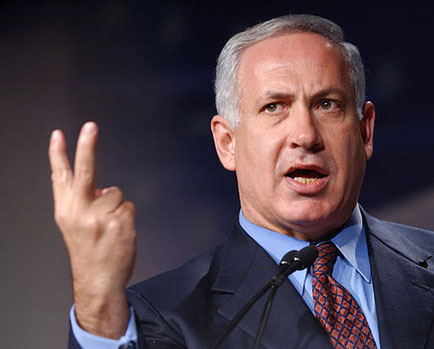Netanyahu will attempt to influence Syrian cease-fire agreement and urge Putin to coordinate with Washington despite tensions, senior official says
By Barak Ravid, Haaretz
Prime Minister Benjamin Netanyahu is to meet Russian President Vladimir Putin Wednesday in the resort town of Sochi on the Black Sea. Netanyahu will present to Putin Israel’s concerns that the cease-fire agreement now being formulated in southern Syria will perpetuate Iran and Hezbollah’s presence in Syria at the conclusion of its civil war.
A senior Israeli official said Netanyahu would stress that despite tensions between Moscow and Washington, Russia and the United States need to cooperate to reach an arrangement in Syria that would not strengthen Iran.
The meeting on Wednesday will be the sixth between the two leaders since September 2015. Netanyahu will come to the meeting together with Mossad chief Yossi Cohen, the new national security adviser, Meir Ben-Shabbat and Environmental Protection Minister Zeev Elkin. In the afternoon, Netanyahu and Putin will meet in a smaller forum after which there will be another meeting in a larger forum. Netanyahu will fly back to Israel in the late afternoon.
A senior Israeli official involved in preparations for the meeting said that the main topic Netanyahu wanted to discuss with Putin was the cease-fire in southern Syria toward which the United States and Russia are now working. The official said that although the cease-fire was declared a few weeks ago, its conditions have not been finalized.
“Meanwhile, there is really no agreement, but only understandings regarding areas where there will be a cease-fire between the Syrian army and the rebels who do not belong to ISIS [the Islamic State] or Al Qaida,” the official said. “All the rest of the details are still coming together. Therefore this is the time to exert an influence and we want to make a quick and urgent effort to ensure that our security interests are protected. The meeting with Putin is precisely for this purpose,” he added.
According to the senior official, the main problem is that since the cease-fire was declared in early July, relations between Russia and the United States have reached such a low point that Russia expelled U.S. diplomats. At the same time, issues like the crisis with North Korea and internal problems at the White House have made it difficult for the U.S. administration to devote time and attention to the matters in Syria. “We believe that an attempt must be made to bring the United States and Russia together,” the senior Israeli official said. “For a real arrangement in Syria, they have to sit down together. Without cooperation between them it won’t work,” he added.
Israel’s main concern is that in the end the Russians and the Americans will make do with understandings on a cease-fire and will not formulate broader arrangements that delineate how Syria should look after the civil war is over. Such a situation could make it easier for Iran, Hezbollah and the Shi’ite militias brought to Syria by the Iranian Revolutionary Guards to establish a presence there.
“I intend to discuss with President Putin Iran’s expedited attempt to establish a military presence in Syria,” Netanyahu said Tuesday. “This is evidence, of course, of Iran’s aggression, which has not diminished in the slightest since the nuclear agreement. But that presents a problem not only for Israel, but for all the countries in the Middle East and the entire world.”
The senior Israeli official said that Netanyahu would tell Putin that Israel believes that after the civil war is over, Syria must be one unified country inhabited only by Syrian citizens. According to the official, Netanyahu will say that Israel believes any arrangement between Russia and the United States must ensure that anyone who is not Syrian leaves the country.
Officials in the Prime Minister’s Office said that Netanyahu was briefed by the delegation that met with the National Security Council in Washington. The U.S. thoroughly understands Israel’s positions on Iran’s establishment in Europe and agreement was reached to maintain continuous contact on the matter, officials added.
Today’s meeting with Putin is part of a broad international endeavor Netanyahu is leading to imbue the international community with a sense of the danger involved in Iran’s establishment in Syria, the officials said, adding that Israel advised the U.S. regarding the trip to Russia.
As in previous meetings between Netanyahu and Putin, Netanyahu is expected to express Israel’s concerns that weapons supplied by Russia to Iran and Syria are being given to Hezbollah. Over the years Israel has raised similar concerns to the Russians, who repeatedly denied the allegations.
Netanyahu and Putin are also expected to discuss the apparatus established two years ago between the Israel Defense Forces and the Russian army to prevent aerial clashes during Russian military activities in Syria.









